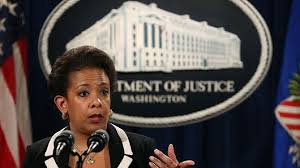The True Impact of DOJ’s Individual Prosecution Memo
 The Justice Department can surprise you – the release of the Yates Memo (here), as it is commonly referred to since it takes on the name of the Deputy Attorney General (e.g. McNulty Memo), is another strange example of DOJ responding to political winds. If anything, DOJ’s action appears a little bit late.
The Justice Department can surprise you – the release of the Yates Memo (here), as it is commonly referred to since it takes on the name of the Deputy Attorney General (e.g. McNulty Memo), is another strange example of DOJ responding to political winds. If anything, DOJ’s action appears a little bit late.
The controversy surrounding DOJ’s failure to prosecute an appropriate number of individual for white collar crimes has been going on for quite a while, at least since Senator Specter pushed the issue in 2010, in relation to the Siemens FCPA settlement.
Since then, DOJ has continued on its merry way, racking up huge corporate fines, entering into DPAs and NPAs, and apparently not devoting enough resources to the prosecution of culpable individuals.
Earlier this year, DOJ officials gave a series of speeches pressing corporations to provide additional information as part of the cooperation process to focus on prosecution of culpable individuals. DOJ officials warned companies that they would have to serve up individuals if they wanted to receive full cooperation credit.
As I always say, DOJ tells everyone what it is planning to do and then does it – to no surprise to anyone, except those who just ignore what DOJ says.
All the commentators reporting on DOJ’s announcement have missed the real point of the Yates Memo. DOJ is not going to turn around now and indict numerous executives from the financial industry or any other industry in follow up to the Yates Memo.
I always chuckle when I read what supposed “experts” and commentators write or speak about the “major” impact that some DOJ action will have in the criminal enforcement area.
As a former AUSA in DC, I can tell you first hand how policy memos like the Yates Memo impact the work of prosecutors around the country. On the front lines of criminal investigations, the Yates Memo will definitely have a significant impact moving forward.
Prosecutors conduct investigations under the direct supervision of line prosecutors who are charged with carrying out various policies. As the prosecutors focus their investigations on companies, more time and attention will be paid to building cases against individuals.
As a result, line prosecutors, with the support of their supervisors, will define “success” in a new way – a corporate settlement with appropriate individual prosecutions of culpable individuals. The real impact of the Yates Memo is that it pushes line prosecutors and their immediate supervisors to build cases that target not only the company but also culpable individuals.
The challenge for prosecutors will be to attend to individual investigations, ensure that the case is investigated and brought within the statute of limitations, and build a case that is strong against not only the company but the culpable individuals.
Some cynics might write off the Yates Memo as just a political posturing piece but those folks just do not understand the impact that DOJ policies can have as they filter within the organization to the line prosecutors and supervisors who are charged with implementing these policies. It is too easy and naive for these critics to ignore the implications of the Yates Memo, and the real world impact that the policy will have.
A good example of a mature criminal enforcement program is the Antitrust Division’s anti-cartel program. Beginning in the 1990s, and with the aid of the leniency program, the Antitrust Division has, on average, prosecuted three individuals for each company that settles and cooperates in an anti-cartel investigation. A 3 for 1 ratio is extremely productive and an appropriate balance between corporate and individual prosecutions.
 All of this raises an important policy issue that is outside the confines of this posting – and to me is the real policy issue that has not been resolved – what is the most effective means to deter corporate misconduct?
All of this raises an important policy issue that is outside the confines of this posting – and to me is the real policy issue that has not been resolved – what is the most effective means to deter corporate misconduct?
Senator Spector, and many others, argued that individual prosecutions are the best way to deter future misconduct. In this respect, many suggest that large corporate fines do nothing more than increase money to the US Treasury at the expense of corporate shareholders.
That is an issue which bears more examination in future posts, but for now, one thing is clear – more individuals will be prosecuted in white collar criminal cases.
















1 Response
[…] Read the complete article at: The True Impact of DOJ’s Individual Prosecution Memo […]